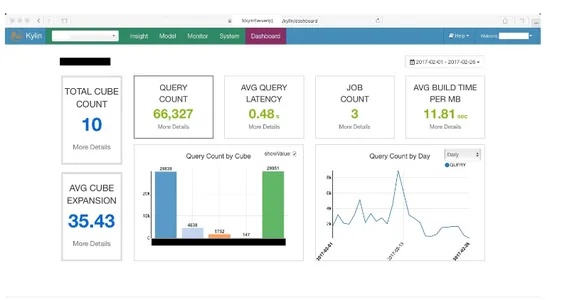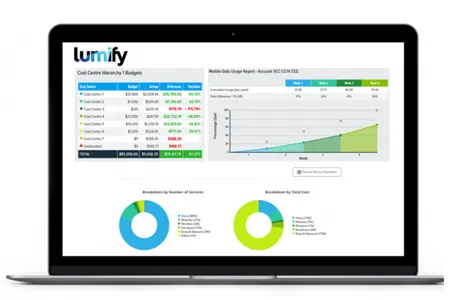Introduction
In today’s rapidly evolving world, where data is the driving force behind decision-making and business growth, it’s crucial to access cutting-edge tools to handle the vast amounts of information we encounter. But with so many options available, finding the perfect big data software can take a lot of time and effort.
That’s why we understand the importance of providing you with valuable assistance in this significant process. Our goal is to equip you with the latest insights and a curated list of essential big-data tools that will empower you to make informed decisions.
By leveraging these resources and recommendations, you’ll be able to tackle the challenges of the data-driven world and unlock the full potential of your business. Let’s embark on this journey together and explore the realm of big data science tools that can revolutionize your decisions.
Table of contents
What is Big Data?
The vast size, diversity and complexity have caused it to be referred to as big data. Big data exhibits high efficiency and technology for acquisition, processing, transportation and organization. It comprises structured, semi-structured and unstructured data obtained from numerous sources. The big data comprises 5 V’s:
- Variety
- Veracity
- Volume
- Value
- Velocity

Why Big Data Softwares and Analytics?
Here are some common reasons to use big data softwares and analytics:
- To leverage the usage of data in descriptive, predictive and prescriptive analytics
- To handle large data volume
- For real-time updates and analysis
- To ease the handling of a variety of data types
- To provide cost-effective solutions for organizations
- For enhanced decision-making
- To gain a competitive edge
- For improvement in customer experience
List of Top 15 Big Data Softwares
- Apache Hadoop
- Apache Spark
- Apache Kafka
- Apache Storm
- Apache Cassandra
- Apache Hive
- Zoho Analytics
- Cloudera
- RapidMiner
- OpenRefine
- Kylin
- Samza
- Unify
- Trino
- MongoDB
Best Big Data Softwares in the Market
Apache Hadoop

Features
- Capable of faster and more flexible due to distributed data processing
- Specificialised for Hadoop Compatible File System effort
- Requires authentication, thus providing higher security for the HTTP proxy server
- Supports extended attributes from POSIX-style filesystem
- Specifically designed for analytical needs
- Contains numerous different sets of Big Data tools and technologies
- Requires lesser hardware such as small-sized JBOD or few disks
- Implementable with
- Good scalability due to storage in small segments
Also Read: Complete Guide on Hadoop and Big Data
Apache Spark

Features
- User-friendly
- Capable of 100 times better memory and 10 times better storage
- Contains 80 built-in high-level operators making spark big data a preferable choice
- Can independently function in cluster mode.
- Also independently performs in Kubernetes, Apache Mesos, Hadoop YARN and Cloud.
- Supports complex Analytics involving graph algorithms and Machine learning, can stream data and perform SQL queries
- Capable of real-time streaming through Spark streaming
Apache Kafka

Features
- Easily
- Fault-tolerant
- No downtime risk
- Can handle large volumes of data streams
- Designed to withstand database and master failures
- Capable of processing large volumes at a time (in publishing and message subscriptions)
Apache Storm

Features
- Highly scalable and offers real-time data processing with a simple interface
- Data processing is possible regardless of lost messages and the death of cluster nodes. It also processes every tuple.
- Handles 1 million 100-byte messages per second per node
- Capable of regular running and automatic resuming on node failure. Will end only on user shutdown or technical fault
- Suitable for both medium and large-scale organizations due to being open-source and high flexibility and robustness
- It can run on JVM or Java Virtual and supports DAG or Direct Acrylic Graph Topology.
- Improved processing time and low latency. Processes each unit at least once.
- Performs parallel calculations by using a cluster of devices
Apache Cassandra

Features
- User-friendly query language makes transitioning from a relational database to Cassandra easy.
- Detects and recovers node failures.
- Allows data reading and writing on any node. Data duplicity on different nodes protects from loss.
- Data replication available across multiple data centers also reduces user delay.
- Built-in restore mechanisms and data backup
- Exhibits perks, contracts, services and agreements from third parties
- Supports all data forms and changes as per the needs
- Fast storage and data processing
Apache Hive

Features
- Offers JDBC or Java Database Connectivity Interface and supports SQL for interaction and data modeling
- Performs language compilation or assembling by tasks map and reducer while allowing defining them with Python or Java
- Can manage and query only structure data
- Avoids the complexity of Map Reduce programming
Zoho Analytics

Features
- Allows creating intriguing dashboards and reports through drag and drop feature
- Also provides interesting Big Data visualization options such as summary views
- User-friendly interface with pre-built analytical functions, charts, KPI widgets, pivot tables and custom-themed dashboards
- Contains software vendors and more than 100 readymade connectors with Embedded BI solution
- Increases accessibility for non-IT users
- Presence of white-label BI portals in Zoho Big Data Analytics software
- Allows augmented analytics using NLP, AI and ML
Cloudera

Features
- Suitable for enterprises with the hybrid cloud solution
- Good for companies requiring real-time insights to monitor and detect the data
- Can develop and train data models
- Cost-effective as it allows spinning and termination of data clusters
- Integrability with platforms like Google Cloud, AWS and Microsoft Azure
- Accuracy in model scoring and serving
- Efficient performance
RapidMiner

Features
- Provides access to more than 40 types of files, such as ARFF and SAS, through URL
- Eases validation and evaluations through the display of multiple results simultaneously
- Allows accessing cloud storage facilities like Dropbox and AWS
- Capable of multiple data management methods
- Requires GUI
- Performs data filtration, merging, joining and aggregation, along with reports and notifications
- Capable of remote analysis processing
- Integrability with in-house databases
- Performs predictive analytics and builds, trains and validates predictive models
- Stores streaming data for numerous databases
OpenRefine

Features
- Easy usability and data importation in different formats
- Quick and allows instant linking and extension of datasets with different web services
- Provides options for handling cells with multiple values
- Allows performing advanced data operations using Refine Expression Language
- Allows labeling of the extractions for automatic and easy identification of topics
Kylin

Features
- Among the big data analytics tools that allow handling multi-dimensional big data analysis
- Capable of performing precalculation of OLAP cubes to accelerate the analysis
- Uses ANSI SQL interface
- Offers easy integration with BI tools such as Power BI and Tableau
Samza

Features
- Designed with fault-tolerant ability for quick delivery from system failures
- Automatically runs as an embedded library in Scala and Java applications
- Contains provision of inbuilt interaction with platforms such as Kafka and Hadoop
Lumify

Features
- Easy scalability
- High security
- Comprises of cloud-based
- Integrability with AWS
- Open-source software
- Constant developments and improvements
Trino

Features
- Curated to long-run batch queries and ad-hoc analytics
- Easy integration with BI tools like Power BI and Tableau
- Can gather multiple data sources in queries
MongoDB

Features
- Written in
- Capable of holding multiple types of documents, thus allowing flexibility
- Can extract data from Master
- Allows backup
- Allows easy file storage without interfering with the stack
- Data storage in different forms like strings, arrays, integers, Booleans and objects
- Indexing increases search quality
- Able to run on different servers
- Performs data duplication to balance the load during technical failure
Also Read: Find out the difference between Data Science and Big Data here
Factors to Consider While Selecting the Big Data Softwares
- Understanding the Business Objectives: The tools should be able to handle current and future requirements, such as data handling, processing and storage. Identify the goals and related outcomes. Recognize the quantity-based analytical goals and subsequently choose the Big Data platforms compatible with dealing with Big Data visualization
- Cost: Research the cost of the chosen tool. It includes analyzing all the expenditure, such as memberships, additional features and cost for scaling up or distribution among the company’s resources.
- Interface: It should be easily handled and understood by the staff members without requiring technical expertise.
- Advanced Features: It should be capable of complex functionalities, prediction and data processing. It must handle complicated
- Integrability: Integration is essential while using multiple software specific to your domain and company. Importing and exporting the data manually reduces efficiency and requires time.
- Scalability: The tool must keep up with the company’s growth. It allows a competitive edge and complements quick decisions.
- Security: Privacy and security are non-compromisable options to secure the data and reputation of the company. It must be met at all processes, levels and systems.
Conclusion
In conclusion, using big data software is crucial for companies to drive their growth in today’s data-driven landscape. With many options available in the market, choosing the right tool can be challenging. However, this article simplifies decision-making by highlighting the key features of 15 prominent big data tools.
By leveraging the power of big data tools, companies can unlock valuable insights, optimize operations, enhance decision-making processes, and ultimately drive their overall growth. Therefore, investing time and effort into understanding different big data tools and selecting the appropriate one is imperative for any company seeking to harness the potential of data-driven strategies.
If you want to learn more about big data analytics and softwares used, then our Blackbelt plus program is the best option for you. Explore the program here.
Frequently Asked Questions
A. They are software applications designed specifically for the storage, analysis and processing of complex data with advanced functionalities.
A. SQL, or Structured Query Language, is not a big data tool but a language for managing and querying relational databases.
A. Structure, semi-structured and unstructured data are the three types. Structured data is well-organized and formatted, unstructured data is available in different formats, and semi-structured data is a hybrid form containing both structured and unstructured elements.
A. Big data tools are used for data storage, management, processing, analysis, integration and advanced analytics, among multiple other functionalities.







